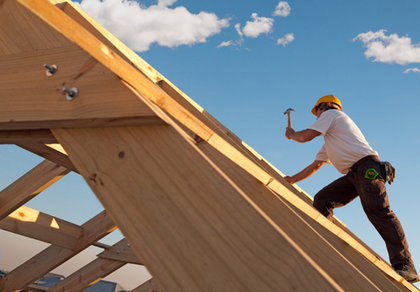Construction spending in April rose 4.3 percent from the year before, though residential construction was a bit more tepid by comparison.
April was another solid month for construction spending in the U.S. economy, with overall construction spending for the month rising 0.4 percent from March and 4.3 percent from April 2012, according to the latest analysis from the U.S. Census Bureau.
On a more specific basis, though, the situation was a bit more nuanced. Although overall construction spending for the first four months of this year is up 4.5 percent from the same period in 2012, residential construction spending, which tracks spending on new homes and multifamily buildings, fell a bit, dropping 0.1 percent from March to April.
Residential Construction Spending Disappoints?
Of course, that 0.1-percent decline was not the full story for residential construction spending:
- Private construction spending, which includes both residential and nonresidential construction activity, did increase in April, rising 1.0 percent from March (nonresidential picked up the slack with a 2.2-percent jump).
- Beyond monthly measures, though, residential construction activity is making notable strides.
- Year-over-year, residential construction is up 19 percent, and since bottoming in early 2009, is now up by 36 percent.
What’s Good for Residential Construction is Good For the Economy
All of those trends, noted Bill McBride on his Calculated Risk blog, actually bode quite well for the construction industry and the greater U.S. economy.
Private residential construction, McBride wrote, normally makes up the largest share of total construction spending, but after the big declines that followed the housing downturn, it made up a smaller and smaller percentage.
Now, though, residential construction is making a comeback, and based on the first four months of the year, McBride anticipates residential construction to be the largest category of construction spending, which will be a good sign for the economy, given all the economic sectors that construction impacts.
“Usually private residential construction leads the economy, so this is a good sign going forward,” he wrote.
McBride did point out one other aspect of the Census Bureau’s numbers, though – public construction, which covers bridges, roads, park districts, etc., declined once again in April, and has now fallen to 2006 levels; in real terms, public construction is now at its lowest level since February 2001, and though such activities will not directly affect, say, the supply of new homes on the market, such spending does impact the qualities of neighborhoods and their amenities.
